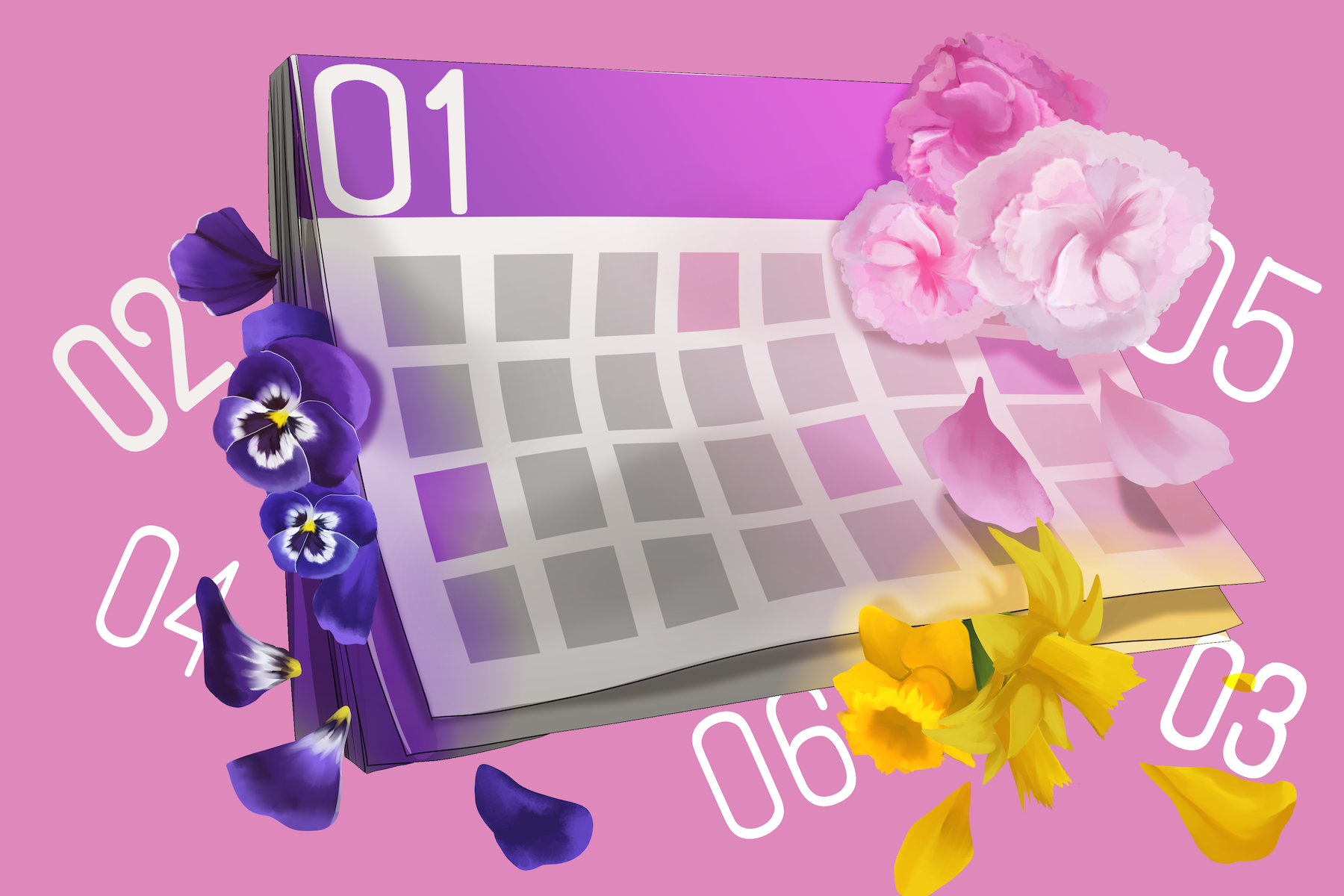Many people love horoscopes and birthstones, but few know about the history and meaning behind birth flowers and how to incorporate them into daily life. Thought to stem from Roman tradition, birth flowers come from the use of flowers as gifts or for birthday celebrations.
Throughout the 18th and 19th centuries, the “language of flowers” developed, which assigned meaning to various flowers and enabled people to send messages through the different flowers’ symbolism and secret meanings. Today, each month has at least one chosen birth flower while some have more, but the following list offers a description of a flower for each month and what it symbolizes.
January: Carnation
Carnations, whose name originates from either the Latin “corona-ae,” meaning “wreath, garland, chaplet or crown,” or from the Latin caro, “flesh,” come in many different colors. They can symbolize love if the flower is red or purity if it comes in white, while yellow connotes rejection. While they are simple and abundant, carnations are fun and versatile flowers that are also edible, making them a fun addition to desserts or drinks and lovely additions to floral arrangements.
February: Violet
The lush purple violet is February’s birth flower. It has several medical uses, and many scholars believe it represents loyalty, bravery, wisdom and faith. Although the full-bloomed flowers are small, they remain strong in the face of harsh winter conditions, which makes sense as a charming and appropriate choice for the birth flower of February.
March: Daffodil
The birth flower of March is the daffodil, which has a bright yellow shade and blooms early in the season. The timing of the daffodil and the initial glimpses of spring found in the late days of this month make them a perfect pair. Daffodils represent new beginnings, rebirth and joy.
April: Daisy
April’s birth flower is the daisy, found in many sizes and colors. Daisies bloom upon first sunlight, so they are named “daisy.” Daisy comes from the old Anglo-Saxon word meaning “day’s eye.” They symbolize purity, innocence and secrecy and are a classic flower used for spring bouquets and April weddings.
May: Hawthorn
May’s birth flower is the hawthorn. There are almost 300 species of this flower, and it is well-known for its impact on spiritual and physical health. Its other name, “crataegus,” derives from the Greek words kratos for “strength” and akis for “sharp,” thanks to its thorns. The Mayflower ship was named after hawthorn for its symbolism of hope and love.
June: Rose
The birth flower for June is the rose, which, like the carnation, comes in a variety of colors with different meanings according to the language of flowers. Roses contain the most accessible and versatile herbal remedies and remain ubiquitous flowers. Red roses represent love, orange roses represent passion, white represents purity, pink symbolizes admiration, and yellow can mean friendship or jealousy. Generally, roses have the meaning of love, devotion and beauty.
July: Water lily
For July, the birth flower is the relaxed water lily found nestled atop fresh water. These flowers are also called Nymphaea, derived from the Greek word nymph, a feminine spirit that is believed to inhabit rivers and woods. Water lilies symbolize femininity and majesty and purity, grace and positivity. It comes in various colors, including white, pink, blue and purple, and inspires feelings of serenity and peace.
August: Poppy
The poppy, a bright-colored, often red flower that symbolizes pleasure, consolation and success, is August’s birth flower. It can be used for its sedative effects and is usually included in relaxation rituals. The poppy also has many historical meanings, often used to honor those fallen in battle.
September: Morning glory
September has the lovely purple morning glory as its birth flower, found on vines and trellises. Morning glories symbolize affection, and they get their name from their tendency to open up early in the morning and close in the afternoon. They contain a variety of health properties and have notable minerals and vitamins.
October: Marigold
For October, the birth flower of marigolds provides a gorgeous warm autumnal palette to usher in fall with their orange, yellow and white shades. Their meanings vary, including grief and jealousy, love and passion, optimism and prosperity. They can also be used as a fragrant tea with the medicinal benefits of alleviating cramps and aiding digestion.
November: Chrysanthemum
November’s birth flower is the chrysanthemum, or “mums,” as they are often called colloquially. Mums are fragrant, romantic flowers found in myriad colors. They are a popular flower for fall and come in yellow, orange, white and purple.
Overall, they are thought to symbolize friendship, connection, positivity and optimism. They also represent joy and longevity. In the context of the language of flowers, their meaning changes depending on their color. As seen with other flowers, red nearly always means love, and white usually symbolizes purity.
December: Narcissus
Lastly, December’s birth flower is the narcissus, which has hundreds of different species, including daffodils. Narcissus comes from the Greek myth of Narcissus, the man who fell in love with his reflection. As flowers, narcissus flowers symbolize sweetness and have an affirming quality when gifted. They also represent inspiration, vitality and faithfulness.
Birth flowers are a fun way to honor someone’s birthday, whether as a thoughtful bouquet or a more creative option. Knowing about birth flowers can let you give a great gift or just share an interesting tidbit.
Etsy has excellent gifts relating to birth flowers, including special bundles and jewelry with etchings of personalized birth flowers. Flowers remain a treasured aspect of society because of their lovely symbolism, beautiful appearance and healing properties.

















